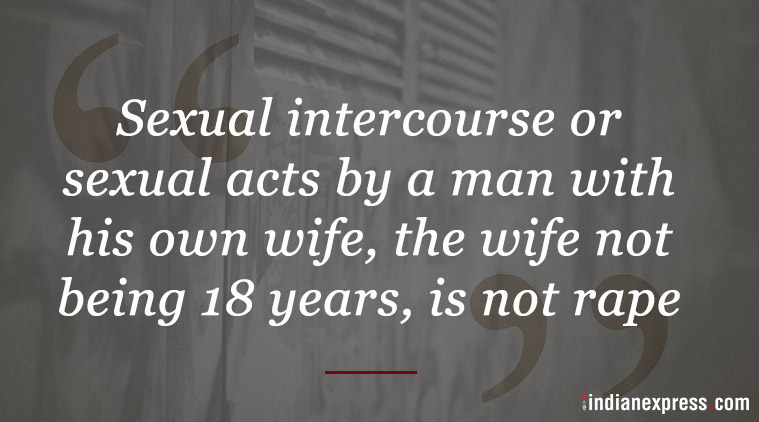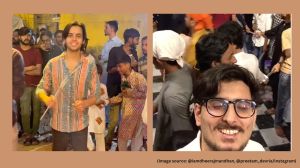Stay updated with the latest - Click here to follow us on Instagram
Right to privacy, instant triple talaq, age of consent: SC’s crucial orders in 2017
As the year draws to a close, we look back at some of the crucial judgments passed by courts in India and the pending cases that reached their conclusion.
 Read on the important cases that reached its end and crucial judgments of 2017 that changed the course of law.
Read on the important cases that reached its end and crucial judgments of 2017 that changed the course of law.
From making privacy a fundamental right to declaring instant triple talaq invalid, the Supreme Court passed some landmark judgments in the year 2017. The year also saw dentist couple Rajesh and Nupur Talwar walking out free from jail in the Noida double murder case. The Delhi high court upheld death sentence to four accused in the December 16 gangrape case. As the year draws to a close, we look back at some of the crucial judgments passed by courts in India.
Privacy under Article 21 of the Constitution
JUSTICE K S PUTTASWAMY (RETD.), AND ANR. v. UNION OF INDIA
In a landmark judgment passed by a nine-judge bench, the Supreme Court ruled that individual privacy is a fundamental right emerging from guarantee of life and personal liberty under Article 21. The bench ruled that privacy included the preservation of personal intimacies, the sanctity of family life, marriage, procreation, the home and sexual orientation.

Triple talaq made unconstitutional
SHAYARA BANO v. UNION OF INDIA
The Supreme Court ruled that the practice of instant triple talaq or talaq-e-biddat in the Muslim community is invalid. The SC bench headed by then Chief Justice of India J S Khehar, set aside the practice by a majority of 3:2.

Abortion law
MURUGAN NAYAKKAR v. UNION OF INDIA & ORS.
On October 7, the apex court allowed a 13-year-old girl to terminate her 31-week pregnancy after it was detected that the teen would be in as much danger as the child she was bearing, during delivery.

Age of consent increased to 18
INDEPENDENT THOUGHT v. UNION OF INDIA & ANR.
The Supreme Court criminalised sexual intercourse by a husband with his wife who is under 18 years. The top court struck down the exception clause under Section 375 IPC. With this judgment, sexual intercourse by a husband with his wife who is below 18 was made punishable under IPC.

Linking PAN card to Aadhar
BINOY VISWAM v. UNION OF INDIA & ORS.
The Centre’s amendment to the Income Tax (IT) Act making it compulsory for assessees to link their PAN and Aadhaar numbers passed judicial scrutiny with the Supreme Court upholding it. The apex court rejected the contention that the changes had the effect of making Aadhaar which was “voluntary” under the Aadhaar Act into a “mandatory” requirement.
Anti-dowry law
RAJESH SHARMA & ORS v. STATE OF U.P. & ANR
The Supreme Court on July 27 amended the anti-dowry law and issued slew of guidelines for dowry related investigations. The court required districts to constitute Family Welfare Committees and directed that passports of individuals involved in the case would no longer be rescinded as well as Red Corner Notice would not be a routine.
Here are some of the major cases of 2017 that were provided with relief.
Noida double-murder case
Dentist couple Rajesh and Nupur Talwar were acquitted of all charges in the murder of their daughter Aarushi by the Allahabad High Court on October 12, 2017. They walked out free from the Ghaziabad Dasna Jail after spending four years in jail.

Nirbhaya case
On May 5, the Delhi High court upheld the death sentence of four accused in the December 16 Delhi gangrape case. Passing its order, the court called their crime “most brutal, barbaric and diabolical.”

1993 Mumbai Blasts
The TADA court in Mumbai convicted five out of the seven accused in the 1993 Mumbai bomb blasts on September 7, 2017. Tahir Merchant, Firoz Khan, and Riaz Siddiqui were awarded death sentence, whereas Abu Salem and Karimullah Khan were sentenced to life imprisonment.
Gurmeet Ram Rahim case
A special CBI court sentenced Dera Sacha Sauda chief Baba Gurmeet Ram Rahim Singh to 20 years of imprisonment. Ram Rahim was awarded two 10 years rigorous imprisonment along with Rs. 30 lakh for committing rape of two women.
2G Spectrum case
The CBI court on December 21 acquitted all 17 accused in the 2G spectrum case, among which included former telecom minister A Raja and daughter of K Karunanidhi, DMK Chief, Kanimozhi.







